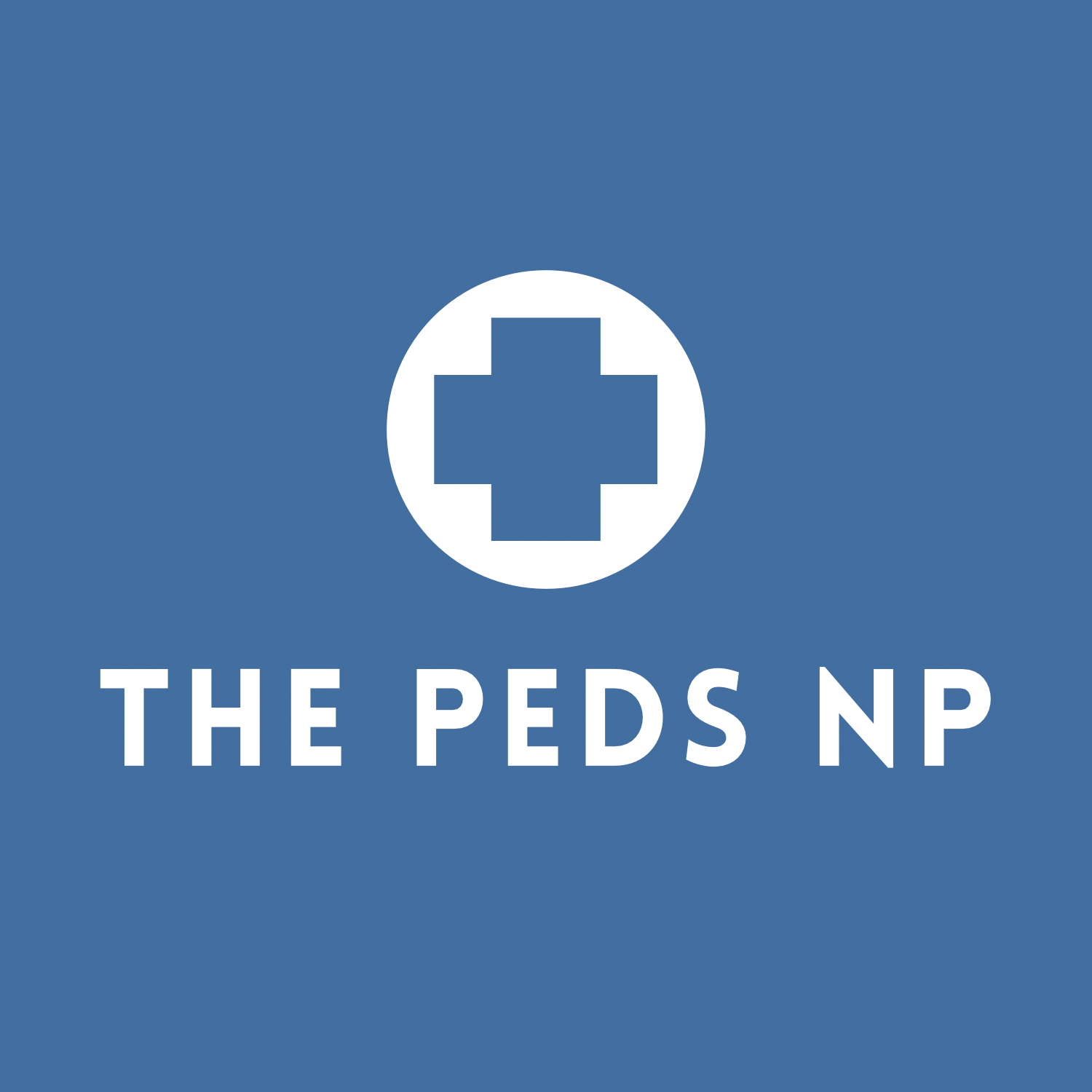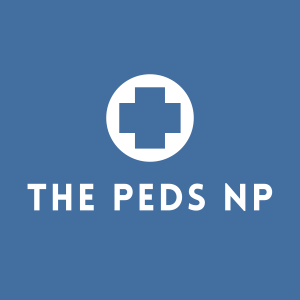

74K
Downloads
81
Episodes
The Peds NP provides a practical approach to the application of evidence-based practice in pediatrics using a conversational commentary to help you apply the most current literature to your practice with children. The host is Becky Carson, DNP, APRN, CPNP-PC/AC. She is a dual-certified pediatric nurse practitioner in acute and primary care and faculty member at the Duke University School of Nursing in Durham, North Carolina. Through an approachable review of the literature, you can easily apply knowledge to clinical practice to improve outcomes in pediatric care. Disclaimers & Show Notes: www.thepedsnp.com
Episodes

Monday Jul 15, 2024
Acute Care Faculty Series: Delivering Bad News (S11 Ep. 71)
Monday Jul 15, 2024
Monday Jul 15, 2024
Welcome back to The Peds NP Acute Care Faculty series! This collaborative series was created and peer-reviewed by national experts and leaders in acute care PNP education. In the push for competency-based education where faculty verify the skills of what a learner can do, rather than their knowledge, our series focuses on the application of didactic content with a practical approach in a conversational way so that you can learn the nuances of clinical skills before you reach the bedside.
This episode discusses a standardized approach to delivering bad news, founded in the literature. The SPIKES protocol is the most well recognized approach to create an environment, assess patient and family knowledge and preferences, deliver the news compassionately, and empathize prior to a summary. With examples of phrasing you can offer at each step, you’ll gain the skills necessary to deliver bad news.
Authors (alphabetical): Becky Carson, DNP, APRN, CPNP-PC/AC, Ann Felauer, DNP, APRN, CPNP-PC/AC, Belinda Large, DNP, APRN, CPNP-PC/AC, and Robyn Stamm, DNP, APRN, CPNP-PC/AC
Welcome to The Peds NP Acute Care Faculty series! This series was created and peer-reviewed by national leaders in acute care PNP education collaborating with one another to meet the needs of our current and future colleagues. In the push for competency-based education where faculty verify the skills of what a student can do, rather than their knowledge, our series focuses on the application of didactic content with a practical approach so that you can learn nuances of clinical skills before you reach the bedside.
This episode reviews the features of a patient presentation in the pediatric intensive care unit (PICU) and goes in depth on how learners can incorporate trends, new findings, and summaries into a succinct discussion in family-centered rounds. After an introduction with some general best practices, the guide begins with effective pre-rounding and progresses to the step-by-step components of a PICU patient presentation. The template describes each component’s contents in detail, followed immediately by an example to demonstrate the practical application of each concept… “It might sound something like this:”... This episode is a valuable tool for any pediatric provider seeking to increase their skills in succinct synthesis and patient presentations, regardless of clinical setting.
This episode was peer reviewed by The Peds NP faculty series peer review team. You can read about our novel and scholarly approach to peer review, review our faculty lineup, and learn more about the series, competency mapping, references, and show notes at www.thepedsnp.com. There was no financial support or conflicts of interest to report. Follow me on Instagram @thepedsnppodcast. Email me at thepedsnp@gmail.com. Remember that this isn’t just a podcast, you’re listening for the kids.
Authors (alphabetical): Jackie Calhoun, DNP, CRNP, CPNP-AC, CCRN, Becky Carson, DNP, APRN, CPNP-PC/AC, Lena Oliveros, MSN, CPNP-AC, Priscila Reid, DNP, APRN, FNP-C, CPNP-AC
Peer Review:
This episode was peer reviewed using a modified revised METRIQ (rMETRIQ) Score. Learn more about The Peds NP's formal peer review process at www.thepedsnp.com/peerreview
rMETRIQ Score: 15/15
What does this score mean? This episode underwent a quality assurance process using formal peer review and achieved the top scores based on established quality criteria for podcasts.
Financial disclosures/conflicts of interest: None
Connect with The Peds NP
email: thepedsnp@gmail.com
Instagram: @thepedsnppodcast
References:
Brouwer, M. A., Maeckelberghe, E. L. M., van der Heide, A., Hein, I. M., & Verhagen, E. A. A. E. (2021). Breaking bad news: what parents would like you to know. Archives of disease in childhood, 106(3), 276–281. https://doi.org/10.1136/archdischild-2019-318398
Buckman R. (1984). Breaking bad news: why is it still so difficult?. British medical journal (Clinical research ed.), 288(6430), 1597–1599. https://doi.org/10.1136/bmj.288.6430.1597
Buckman R. (2001). Communication skills in palliative care: a practical guide. Neurologic clinics, 19(4), 989–1004. https://doi.org/10.1016/s0733-8619(05)70057-8
Institute of Medicine (US) Committee on Palliative and End-of-Life Care for Children and Their Families, Field, M. J., & Behrman, R. E. (Eds.). (2003). When Children Die: Improving Palliative and End-of-Life Care for Children and Their Families. Chapter 4 communication, goal setting, and care planning. National Academies Press (US).
Kaplan M. (2010). SPIKES: a framework for breaking bad news to patients with cancer. Clinical journal of oncology nursing, 14(4), 514–516. https://doi.org/10.1188/10.CJON.514-516
Ptacek, J. T., & Eberhardt, T. L. (1996). Breaking bad news. A review of the literature. JAMA, 276(6), 496–502.
Sisk, B., Frankel, R., Kodish, E., & Harry Isaacson, J. (2016). The Truth about Truth-Telling in American Medicine: A Brief History. The Permanente journal, 20(3), 15–219. https://doi.org/10.7812/TPP/15-219
Varkey B. (2021). Principles of Clinical Ethics and Their Application to Practice. Medical principles and practice : international journal of the Kuwait University, Health Science Centre, 30(1), 17–28. https://doi.org/10.1159/000509119
No comments yet. Be the first to say something!